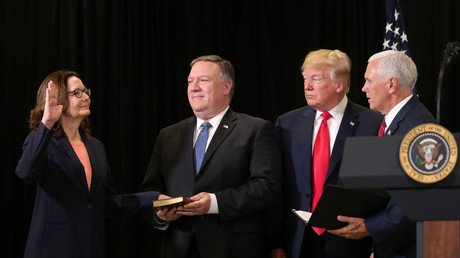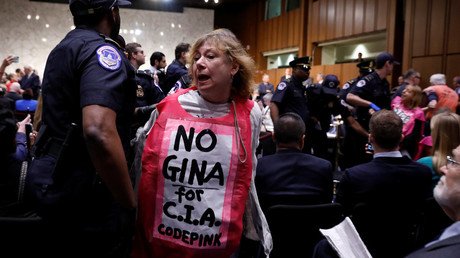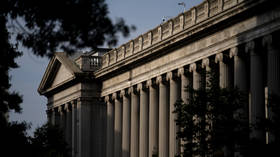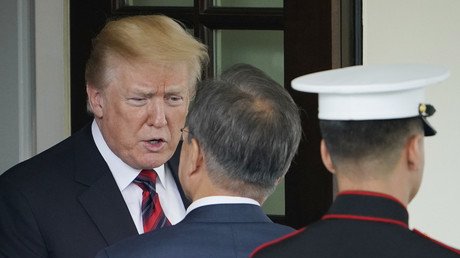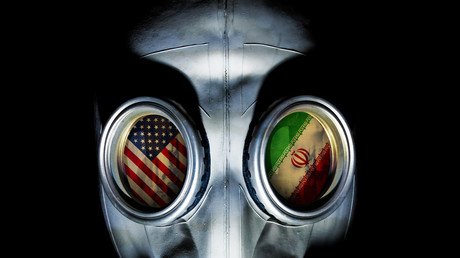US torture program is greatest recruiting mechanism for our enemies - John Kiriakou
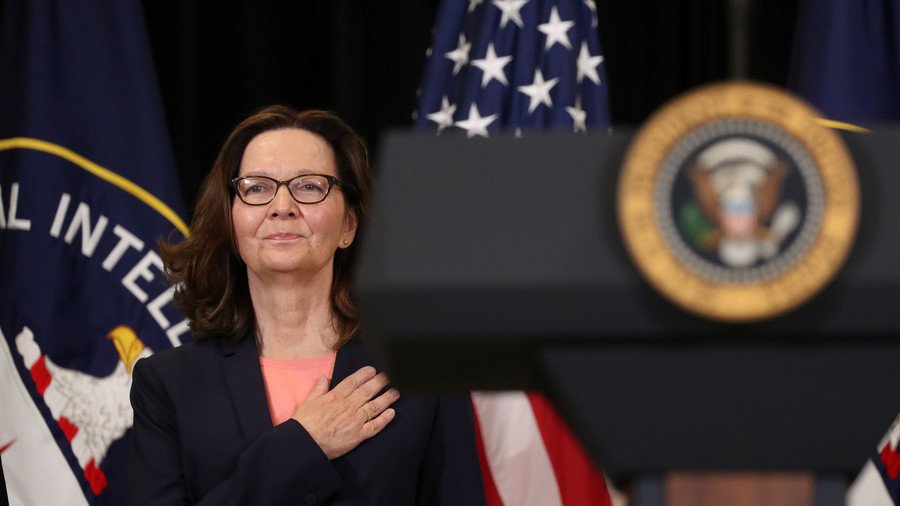
We like to believe, and we want other countries to believe, the US is a shining beacon for human rights, civil rights and civil liberties. It's simply not true, whistleblower John Kiriakou told RT’s On Contact host Chris Hedges.
Hedges discussed the CIA and torture with whistleblower and former CIA analyst and case officer John Kiriakou.
John Kiriakou is the first US government official to confirm in December of 2007 that the CIA was using torture. He was charged with disclosing classified information to journalists, convicted, sentenced and served 30 months in a high-security Federal Correctional Facility in Pennsylvania. John is currently involved in prison reform.
The decision to approve Trump nominee Gina Haspel as head of the Central Intelligence Agency raises serious questions about the rule of law. Haspel is alleged to have been the chief of a CIA black site in Thailand where torture occurred and involved with the destruction of videotapes that recorded some of the torture of Al-Qaeda suspects captured during the Bush administration.
Chris Hedges:I want to talk about torture as somebody who covered the war in El Salvador, I covered Al-Qaeda out of Paris for the New York Times, was in the former Yugoslavia, I've been around torture most of my career. And I think what many people don't understand is that you torture when your intelligence system doesn't work. A functioning intelligence system doesn't need to torture.
What we saw, and you were inside the CIA at the time, was this desire to create a narrative out of the Bush White House particularly out of Dick Cheney's office that Iraq and Al-Qaeda were somehow linked. So they were seeking to confirm their own narrative. And my assumption, I want you to address this, is that the desperate act of torture was because that narrative, which turned out to be false, was not being confirmed…
John Kiriakou: I think that's exactly right. And remember that on September, 12, 2001 Richard Perle went to the White House to say we have to attack Iraq. What we saw during those years, especially coming from the office of the vice president, was an effort to come to a policy conclusion and then to cherry-pick the intelligence to support that conclusion. Although, there was no intelligence that Iraq was involved in Al-Qaeda because they weren't. And there was no reason to attack Iraq at all.
CH:I was in Paris after 9/11, working with French intelligence. And French intelligence officials told me that the CIA had no human assets inside of Al-Qaeda. None…
JK: That was true. And we saw that in the 9/11 Commission Report. This was a complete and total intelligence failure. Not just because the CIA failed to do its job by recruiting spies to steal those secrets, but also because the relationship with the FBI was so acrimonious, so poor that there was literally no cooperation between the CIA and the FBI. Even if the FBI had had sources inside Al-Qaeda or access sources here in the US to Al-Qaeda overseas, they weren't sharing it with the CIA.
CH: When I was working with French intelligence, the French argued that the all of the Al-Qaeda attacks that they were able to thwart, were thwarted by having human assets inside of the organization. That's how they stopped a planned attack on the Paris embassy, that's how they stopped the planes being flown into the Eiffel Tower… Is that correct?
JK: That is absolutely correct. You can only truly get inside the mind of a terrorist, if you've recruited somebody next to him. You can spend billions of dollars on electronics, you can give billions of dollars to NSA. If you don't have a human source you're not going to get the full story.
CH:I want to talk about the nature of torture. Because when you torture, it empowers a certain type of individual. There were 14 people who were asked to go into what they called enhanced interrogation, just a nice euphemism for torture, and you were the only one of the 14 who refused… But it caters to a particular type of individual, Haspel being one. Explain to me who those people are.
JK: A CIA psychiatrist once told me that the CIA actively seeks to hire people who have sociopathic tendencies, not sociopaths, because sociopaths have no conscience, they easily pass a polygraph but they're impossible to control. People who have sociopathic tendencies have a conscience, but are happy to operate in moral and legal gray areas. But it's impossible to keep sociopaths out. And it is because they don't have a conscience.
Just like in corporate America, it is those sociopaths that rise to the top levels of leadership. That is exactly what we've seen at the CIA. When Gina Haspel was testifying before the Intelligence Committee, she was lauded for her ‘spine of steel’…But she didn't have the spine necessary to stand up and say: “No, this is wrong. You know, this is illegal, unethical or immoral.”…
CH:Why is torturing counter-productive to American national interests?
JK: Torture and the torture program are the greatest recruiting mechanisms for our enemies. It galvanizes people overseas. I’m going to make an analogy and comparison to the drone program…I’ve been responsible for the capture and interrogation of dozens of Al-Qaeda fighters. None of them – at least at the fighter level – had any specific problem with the US until we started bombing their villages and killing their family members and so they joined the fight. The same is true about torture.
…I think, it is a terribly corrosive policy. It eats away at our humanity. I say all the time, we like to believe and we want other countries to believe that we are this shining beacon for human rights and civil rights and civil liberties and it's just simply not true.
You know every year the State Department writes a Human Rights Report on every country in the world with which we have diplomatic relations. When you've got a State Department officer going into, let's say, a mnistry of interior and saying “Look, you can't torture these people, you can't arrest 14-year olds, you can't do this and that and the other thing.” And then an hour later CIA officer walks into the same office and says: “Don't pay any attention to the State Department guy, we want you to open this secret prison, so we can bring our terrorist prisoners and torture them without anybody knowing.”
It just eats at the very foundation of what our country stands for. There are some things that we ought not to do no matter what the cost. And torture is one of those things.
Watch the full episode here:
Think your friends would be interested? Share this story!
